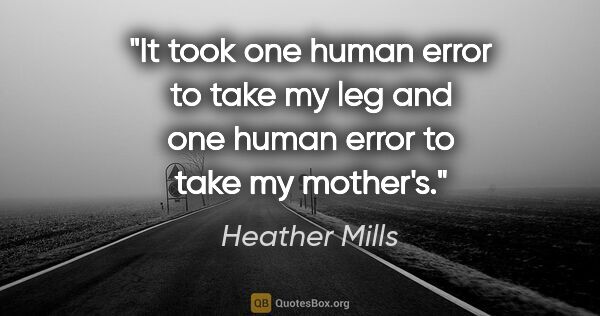Human Error Quotes
Oh! if, when we oppress and grind our fellow-creatures, we bestowed but one thought on the dark evidences of human error, which, like dense and heavy clouds, are rising, slowly it is true, but not less surely, to Heaven, to pour their after-vengeance on our heads; if we heard but one instant, in imagination, the deep testimony of the dead men's voices, which no power can stifle, and no pride shut out; where would be the injury and injustice: the suffering, misery, cruelty, and wrong: that...
Charles Dickens

Human manners are wildly inconsistent; plenty of people have said so. But this one takes the cake: the manner in which we're allowed to steal from future generations, while commanding them not to do that to us, and rolling our eyes at anyone who is tediously PC enough to point that out. The conspicious consumption of limited resources has yet to be accepted widely as a spirtual error, or even bad manners.
Barbara Kingsolver
Man has been reared by his errors: first he never saw himself other than imperfectly, second he attributed to himself imaginary qualities, third he felt himself in a false order of rank with animal and nature, fourth he continually invented new tables of values and for a time took each of them to be eternal and unconditional...If one deducts the effect of these four errors, one has also deducted away humanity, humaneness, and 'human dignity'.
Friedrich Nietzsche
Learn to distinguish the difference between errors of knowledge and breaches of morality. An error of knowledge is not a moral flaw, provided you are willing to correct it; only a mystic would judge human beings by the standard of an impossible, automatic omniscience. But a breach of morality is the conscious choice of an action you know to be evil, or a willful evasion of knowledge, a suspension of sight and of thought. That which you do not know, is not a moral charge against you; but that...
Ayn Rand
Truth is great and will prevail if left to herself, that she is the proper and sufficient antagonist to error, and has nothing to fear from the conflict, unless by human interposition disarmed of her natural weapons, free argument and debate; errors ceasing to be dangerous when it is permitted freely to contradict them.
Thomas Jefferson
